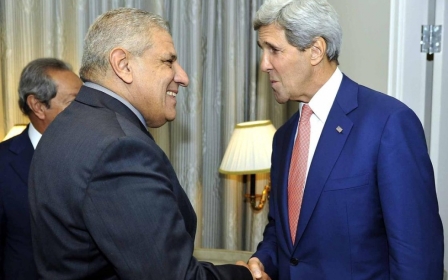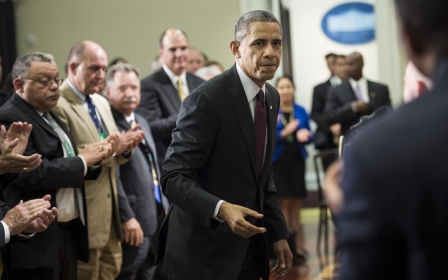Jordan bank goes on trial for 'financing terrorists'

Jordan's Arab Bank went on trial Thursday in New York accused of aiding terror by transferring support funds to the families of Palestinian suicide bombers with alleged ties to Hamas during the Second Intifada in the early 2000s.
The families of several American bystanders killed in the attacks during the conflict said the bank, which has a New York branch, was in violation of the 2001 Anti-Terrorism Act when it served as a conduit for the money from a Saudi Arabian fund to the Palestinian families.
But the bank argued on the first day of the trial that it could not be connected to the attacks cited by the accusers.
This is the first time a bank has faced a trial under the Anti-Terrorism Act which allows victims of US-designated foreign terrorist organisations to seek compensation, according to the Associated Press. The US State Department designated Hamas a terrorist organisation in 1997.
If the court finds it guilty, the bank said such a ruling would place too much burden on the global banking system and its routine automatic transfers of trillions of dollars every day of money on behalf of clients not officially blacklisted.
"The facts show that Arab Bank provided routine banking services in compliance with applicable counterterrorism laws and regulations, and had no intention of providing support to Hamas or any other known terrorist organization," it said.
The plaintiffs filed the suit against the bank in 2004, four years into the Second Intifada, a Palestinian uprising that left thousands of Palestinians and Israelis dead.
The plaintiffs said Arab Bank was the conduit by which the Saudi Committee for the Support of the Intifada Al-Quds fund sent money to the families of Palestinians who died in the uprising, including suicide bombers.
They also pointed out that Hamas, which the US officially designates a terror group, directed the distribution of the money from the Saudi fund.
That made the Saudi Committee and Arab Bank active supporters of Hamas's attacks, they said.
"Any person who chooses to participate in a suicide bombing or other terrorist attack does so secure in the knowledge that, if he or she is killed in that attack, the financial needs of his or her family will be more than met for some time," the suit said.
By taking part in supporting the families, Arab Bank "knowingly aided and abetted each and every terrorist act committed by Palestinian terrorists."
"They were using these charities to fund terrorism," said the plaintiffs' attorney Mark Werbner. "They wired money at the demand of Hamas. They received money on behalf of Hamas. They made direct payment to Hamas."
But Arab Bank lawyer Shand Stevens defended the bank, saying that it complied with US laws and that the Saudi Committee, as the source of the funds, was never named as a terror group by the United States.
He told the court the bank too had been a victim of Hamas and other terror groups.
Arab bank has 200 branches in 30 countries. Its shareholders included the king of Jordan and the family of former Lebanese prime minister Rafik Hariri, killed in a 2005 Beirut bombing blamed on Hezbollah, a close ally of Hamas.
Stay informed with MEE's newsletters
Sign up to get the latest alerts, insights and analysis, starting with Turkey Unpacked
Middle East Eye delivers independent and unrivalled coverage and analysis of the Middle East, North Africa and beyond. To learn more about republishing this content and the associated fees, please fill out this form. More about MEE can be found here.




